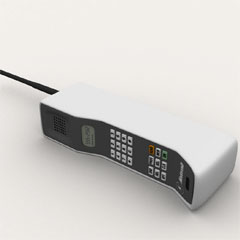
A person who steals a cellphone doesn’t have a privacy right that would prevent police from using global positioning to find the phone and arrest him, a state appeals court ruled in San Francisco today.
A three-judge panel of the Court of Appeal unanimously upheld the conviction of Lorenzo Barnes and sentence of 13 years and eight months in prison for a 2009 armed robbery in San Francisco.
According to the ruling, Barnes stole a purse from Carolyn Fey and a wallet from Charles Parce after brandishing a handgun at them as they walked near Fort Mason in San Francisco shortly after midnight on Nov. 5, 2009.
Fey’s handbag contained her cellphone, and after she told police the phone had a global positioning system, an officer contacted the Sprint PCS phone service, arranged for Fey to sign a release, and then asked Sprint to ping the phone.
On the basis of several pings by Sprint, two officers followed Barnes for several blocks in the Mission District and with the help of a third officer stopped him in a car in a car at 13th and Mission streets about one hour after the robbery.
The officers arrested Barnes after seeing a cellphone on the front seat of the car and a handbag on the back seat that matched the description of Fey’s turquoise Prada purse, and after Fey was brought to the scene and identified him as the suspect.
Barnes later pleaded guilty in San Francisco Superior Court to two counts of second-degree armed robbery and one count of being a previously convicted felon in possession of a handgun, and was sentenced to 13 years and eight months in prison.
But he reserved the right to appeal his claim that the phone pinging carried out without a search warrant violated his expectation of privacy under the U.S. Constitution’s Fourth Amendment ban on unreasonable search and seizures.
The appeals court said, however, that there is no right to privacy in stolen property.
“Did defendant have a legitimate expectation of privacy in the cellphone he had stolen? The answer is an emphatic ‘no,’” Justice James Richman wrote in the court’s decision.
Richman cited a 2005 decision in which the 9th U.S. Circuit Court of Appeals said, “The Fourth Amendment does not protect a defendant from a warrantless search of property that he stole.”
Richman also noted that the arrest was based on a combination of the cellphone pinging and the victims’ description of the stolen purse and the suspect.
That information taken together provided the officers with “ample reasonable suspicion for a detention,” the appeals court said.
Julia Cheever, Bay City News









